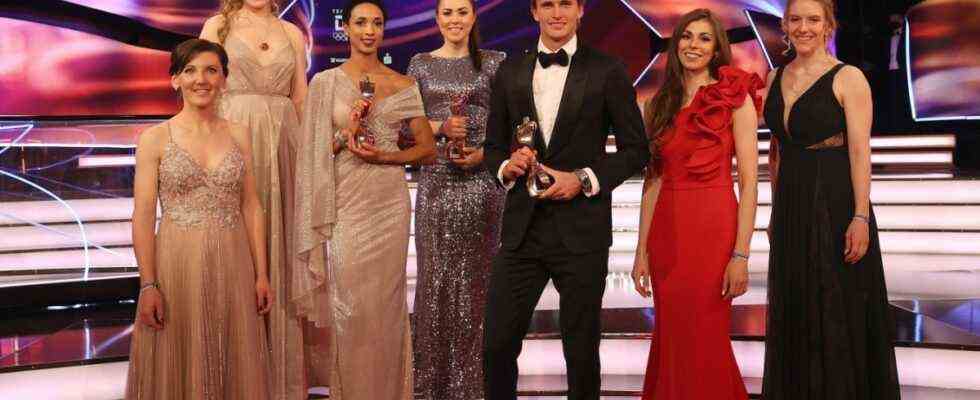Alexander Zverev’s two weeks in summerly sultry Tokyo remained more than the memory of a narrow bunk. At that time, Zverev had moved into accommodation in the Olympic Village and thus had enough experience to draw a comparison between the luxury life on the tennis tour and a rather spartan everyday athlete’s life. Olympia “opened his eyes a little”, he said – because when the tennis train travels, the most expensive hostel in the area is usually booked. However, there are actually athletes in the country who, even for German championships, still pay for train tickets and pension rooms out of their own pockets. And so Zverev combined his election as “Sportsman of the Year” with an address of solidarity: In many disciplines, he explained in Baden-Baden, the athletes deserved more respect and recognition, also financially.
Respect and recognition, these are the key words when traditionally taking stock in December in order to select the outstanding personalities of a sporting year. The task has been the same since 1947 (in the West) and 1953 (in the East), and yet again and again tricky and tricky: it consists of making a worthy choice every year shortly before New Year’s Eve – in the absence of a fixed table of points or a reliable catalog of criteria . Is a world title worth more than a European championship? Can it be decisive whether someone earns millions as a football player? Does it matter if a professional tour investigates a candidate for domestic violence? Does the first Olympic swimming gold in open water count more than the bronze plaque of a wrestler who puts the competition from Asia on the mat? Or is it not sometimes the most worthy accomplishment to fight your way out of a deep tunnel of injury or depression into light?
In Baden-Baden, only one answer was found to all of these questions on Sunday. The majority of the German sports journalists who are entitled to vote agreed in 2021 on the hard currency with which one pays in high-performance operations: medals. The honorees – Malaika Mihambo, Alexander Zverev and the cyclists Lisa Brennauer, Franziska Brauße, Lisa Klein and Mieke Kröger – are all Tokyo Olympic champions: the longest jump into the pit, the final victory in the men’s singles and world records in the Velodrome.
Perhaps that was an anticipated reflex in a year in which sport freed itself from a crippling pandemic and found its way back on mats, tartan tracks, in swimming pools, on gymnastics equipment and on planchen. Twelve months ago, when halls and squares were locked, the role models were found outside of the medal statistics: in ski jumpers who sewed fabric masks, or basketball players who helped with the table. Malaika Mihambo’s social commitment, her association for children, was also in the foreground at the time.
With similar arguments, the long-time athletes spokesman Max Hartung would have been a worthy candidate for the award this time: The saber fencer Hartung shaped the Athleten Germany Association into a moral compass in German sport during his term of office, which has now ended. In Tokyo he lost in the round of 16. In the Olympic year, however, the award for a life’s work was not necessarily on the program.

